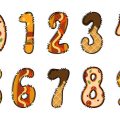Introduction to Zodiac Beliefs in Chinese and Western Cultures
The fascination with zodiac beliefs runs deep in both Chinese and Western cultures, shaping worldviews, personal identity, and even mental health. In the Chinese context, the zodiac is rooted in a twelve-year lunar cycle, each year symbolized by an animal sign—Rat, Ox, Tiger, and so forth. These signs are believed to influence personality traits, life events, and interpersonal compatibility. The origins of the Chinese zodiac trace back thousands of years, intertwining with folklore and traditional cosmology, and remain embedded in contemporary celebrations such as Lunar New Year.
In contrast, Western astrology is based on the twelve signs of the zodiac linked to constellations along the ecliptic path of the sun. Each sign—Aries through Pisces—corresponds to a specific period in the solar calendar and is associated with distinct character traits and destinies. Western astrology’s roots can be found in ancient Babylonian traditions, later refined by Greek and Roman scholars, evolving into the horoscopic system widely recognized today.
While both systems assign significance to birth dates and celestial cycles, they differ fundamentally in their frameworks: the Chinese zodiac emphasizes yearly cycles and animal symbolism, whereas Western astrology focuses on monthly cycles and planetary alignments. Both serve more than entertainment purposes; they provide cultural coherence, guidance for decision-making, and tools for self-reflection. These deeply ingrained belief systems continue to influence how individuals perceive themselves and interact with others—an influence that extends into matters of mental health and wellbeing.
2. Popularization of Astrology in American Society
In recent decades, astrology—particularly Western zodiac beliefs—has seen a remarkable rise in popularity across the United States. What was once considered a fringe or mystical interest has now become an integral part of mainstream culture. This phenomenon is not just limited to entertainment but also influences how many Americans perceive themselves and interact with others, which is directly relevant when considering the impact of zodiac beliefs on mental health.
One reason for this integration is the accessibility of astrological content. Daily horoscopes are published in major newspapers, popular magazines, and widely followed online platforms. Social media has further amplified this trend; memes, posts, and discussions about zodiac signs have become common ways for people to connect and communicate. Terms such as “Mercury retrograde,” “rising sign,” or “that’s such a Scorpio thing to do” have entered everyday language, shaping social interactions and self-perceptions.
The table below highlights some ways astrology is woven into daily American life:
| Aspect of Life | Astrology Influence |
|---|---|
| Media & Entertainment | Horoscopes, celebrity astrologers, astrology-themed TV shows |
| Social Media | Zodiac memes, personality quizzes, compatibility discussions |
| Dating & Relationships | App filters by zodiac sign, “sign compatibility” conversations |
| Mental Health & Self-Reflection | People use zodiac traits for self-understanding and coping |
This widespread adoption reflects more than mere trendiness; it suggests that astrology serves both as a tool for social belonging and as a framework for personal exploration. For many Americans, identifying with a zodiac sign provides a sense of identity and validation, contributing to their overall sense of well-being—or, in some cases, anxiety or limitation. Understanding this cultural context is essential when examining the broader psychological effects of astrological belief systems in America.

3. Zodiac Beliefs and Mental Health: An Evidence-Based Perspective
Scientific inquiry into the psychological effects of zodiac beliefs, whether rooted in Chinese or Western astrology, reveals a nuanced landscape of potential benefits and drawbacks. Numerous studies and expert opinions highlight that the act of engaging with astrological systems can serve as both a coping mechanism and a source of psychological distress, depending on context and individual predisposition.
Positive Psychological Effects
Research published in peer-reviewed journals suggests that moderate engagement with zodiac beliefs may contribute to increased self-reflection and emotional resilience. For example, a 2017 study from the University of California found that individuals who read horoscopes or consult their birth charts often experience enhanced self-awareness and report feeling more in control during uncertain times. Experts propose that this is largely because zodiac narratives provide frameworks for making sense of complex emotions and life events, which can be reassuring in the face of ambiguity or stress.
Community and Social Support
Beyond personal insights, astrology—whether Eastern or Western—can foster a sense of community belonging. According to Dr. Stephanie Wu, a clinical psychologist based in San Francisco, shared belief in zodiac signs can facilitate social bonding, especially among young adults navigating identity formation. In many American cities, astrology-themed events and online groups offer spaces where people connect over shared values, thus potentially enhancing social support networks.
Negative Psychological Consequences
Conversely, excessive reliance on zodiac predictions has been linked to maladaptive behaviors such as externalization of responsibility and fatalism. A 2021 meta-analysis by the American Psychological Association noted that individuals who base significant life decisions solely on astrological advice may experience heightened anxiety or disappointment when outcomes do not align with predictions. Clinical experts warn that persistent belief in fixed destiny—prevalent in some interpretations of Chinese zodiac philosophy—can undermine motivation for proactive problem-solving or seeking professional mental health support.
Cultural Contexts Matter
It is important to recognize that the psychological impact of zodiac beliefs is often moderated by cultural context. For instance, in the United States, astrology is typically approached as entertainment or personal guidance rather than strict destiny; this contrasts with certain East Asian communities where zodiac beliefs may be more deeply integrated into family decision-making and self-concept. As such, mental health professionals recommend culturally sensitive approaches when discussing astrology-related issues with clients from diverse backgrounds.
In summary, existing scientific literature underscores both positive and negative dimensions to engaging with zodiac beliefs. While they can offer comfort and community for many Americans, overreliance poses risks to mental well-being—highlighting the need for balanced perspectives grounded in empirical evidence and cultural understanding.
4. Comparative Analysis: Chinese and Western Zodiac Influences
When examining the impact of zodiac beliefs on mental health, it is essential to compare how Chinese and Western astrology shape individuals’ self-identity, decision-making, and coping styles. Both systems offer unique frameworks that influence daily life, but their cultural roots and interpretive traditions lead to distinct psychological outcomes.
Self-Identity Formation
In Chinese astrology, self-identity is closely linked to the year of birth and its corresponding animal sign, which carries specific personality traits and fortunes. People may internalize these traits from an early age, allowing zodiac signs to become a core aspect of personal identity within families and communities. In contrast, Western astrology typically emphasizes sun signs based on one’s birth month, promoting a more individualized understanding of personality. This can encourage self-reflection and a sense of uniqueness tied to astrological archetypes.
Table 1: Zodiac Influence on Self-Identity
| Chinese Astrology | Western Astrology | |
|---|---|---|
| Identity Base | Year-based Animal Sign | Month-based Sun Sign |
| Cultural Integration | Collective/Family-focused | Individual-focused |
| Personality Traits | Assigned by tradition | Explored through self-discovery |
Decision-Making Patterns
Zodiac beliefs also play a role in guiding important life choices. In Chinese culture, decisions about marriage, career changes, or even moving homes may be influenced by compatibility between animal signs or auspicious dates identified by astrologers. This collective approach can provide comfort but may limit personal agency. On the other hand, Western astrology often encourages people to use their sun sign characteristics as a lens for decision-making, emphasizing autonomy and personal growth rather than adherence to tradition.
Table 2: Zodiac Influence on Decision-Making
| Chinese Astrology | Western Astrology | |
|---|---|---|
| Main Focus | Auspicious timing & compatibility | Personal alignment with star sign traits |
| Influence Source | Family/Elders/Astrologers | Individual interpretation/horoscopes |
| Typical Outcomes | Conformity & harmony | Autonomy & self-expression |
Coping Styles and Mental Health Implications
The coping mechanisms inspired by each zodiac system also differ. Chinese astrology often encourages people to accept fate and seek harmony with social expectations, which can foster resilience but sometimes suppress individual needs or emotions. Western astrology tends to promote introspection and adaptive coping by inviting individuals to explore emotional challenges through planetary influences—potentially supporting psychological insight but occasionally reinforcing fatalistic attitudes.
Overall, while both Chinese and Western zodiac beliefs serve as frameworks for understanding oneself and navigating life’s uncertainties, their contrasting emphases—collectivism versus individualism, tradition versus exploration—produce varied effects on mental health outcomes within their respective cultural contexts.
5. Case Studies and Personal Narratives
Real-Life Experiences from the Chinese Community
Among Chinese individuals, zodiac beliefs often intertwine deeply with family expectations and cultural traditions. For example, Ms. Lin, a 28-year-old living in Los Angeles but raised in Shanghai, recounts how her parents’ insistence on consulting her birth chart before making major life decisions led to persistent anxiety. She describes feeling pressured to conform to auspicious dates and favorable zodiac pairings, which sometimes conflicted with her personal desires. In another case, Mr. Zhang, a university student in New York originally from Beijing, shared that learning he was born in a “bad” zodiac year contributed to long-standing self-doubt and fear of disappointing his family. Despite moving to the US, these beliefs continued to influence his sense of identity and mental health.
Western Astrological Narratives in the United States
Conversely, American interviewees often reported engaging with Western astrology as a tool for self-exploration rather than strict guidance. For instance, Emily, a 35-year-old marketing executive from Chicago, uses her astrological birth chart as a framework for understanding her emotional cycles and relationship patterns. She finds comfort in horoscopes during stressful periods but emphasizes that astrology provides validation rather than determinism. However, not all accounts are positive; Mark, a college student from California, admitted that negative predictions about his sun sign sometimes exacerbated his depressive episodes and feelings of helplessness.
Diverse Mental Health Impacts: Contrasts and Similarities
While both communities use astrology as a lens for self-reflection, the psychological effects differ based on cultural context. In many Chinese families, collective beliefs about fate can create pressure to meet traditional standards, sometimes resulting in anxiety or familial tension. In contrast, Americans tend to engage with astrology more flexibly—often for entertainment or insight—though some still experience distress when faced with unfavorable astrological forecasts.
The Role of Community Support and Dialogue
Importantly, several participants from both backgrounds reported that open discussions about astrology helped mitigate negative mental health impacts. Support groups and online forums provided spaces for individuals to share experiences and challenge fatalistic interpretations. These narratives highlight that while zodiac beliefs can shape mental health in complex ways, community engagement and education offer pathways for resilience and well-being.
6. Critical Reflections and Recommendations
The intersection of zodiac beliefs with mental health carries both opportunities and challenges for individuals, families, and communities. While both Chinese and Western astrology can offer frameworks for self-understanding, meaning-making, and social connection, they also present potential risks such as over-reliance on external explanations for behavior or the reinforcement of stereotypes. This duality necessitates a nuanced approach from those supporting mental wellness.
Potential Risks of Zodiac Beliefs
When zodiac interpretations are taken too literally or used deterministically, individuals may feel boxed in by predictions or perceived limitations tied to their birth chart or animal sign. This can lead to anxiety, fatalism, or the avoidance of personal responsibility for growth and change. In multicultural settings like the United States, misunderstanding or misapplying these beliefs can also contribute to cultural stereotyping or exclusion.
Potential Benefits of Zodiac Beliefs
Conversely, many people draw comfort, hope, and a sense of belonging from astrological traditions. Rituals and narratives around zodiac signs often foster reflection, resilience, and community building. For some, these practices serve as non-clinical coping tools that support mental health by validating emotions and offering guidance during times of uncertainty.
Recommendations for Clinicians
Mental health professionals should adopt a culturally sensitive stance when clients reference zodiac beliefs. Rather than dismissing these systems as superstition, clinicians can explore how astrology influences identity and coping strategies. Open dialogue allows practitioners to assess whether zodiac-based frameworks serve as sources of strength or stress and tailor interventions accordingly.
Recommendations for Educators
Educators play a vital role in fostering critical thinking about zodiac beliefs while respecting cultural diversity. Integrating discussions about astrology into curricula—whether through history, literature, or social studies—can promote media literacy and intercultural understanding. Teachers should encourage students to evaluate astrological claims thoughtfully without shaming those who find meaning in them.
Recommendations for Community Leaders
Community organizations can leverage the popularity of zodiac traditions to create inclusive programming that supports mental wellness. Hosting workshops on the psychological impact of astrology or facilitating cross-cultural dialogues about belief systems can empower individuals to share experiences and challenge stigma. Leaders should remain mindful of the diverse ways people engage with astrology and promote resources that balance tradition with evidence-based mental health practices.
Ultimately, recognizing both the risks and benefits of zodiac beliefs is essential for fostering holistic well-being. By engaging respectfully with these traditions while advocating for self-agency and critical reflection, clinicians, educators, and community leaders can help individuals navigate the complexities of identity, culture, and mental health in contemporary American society.


